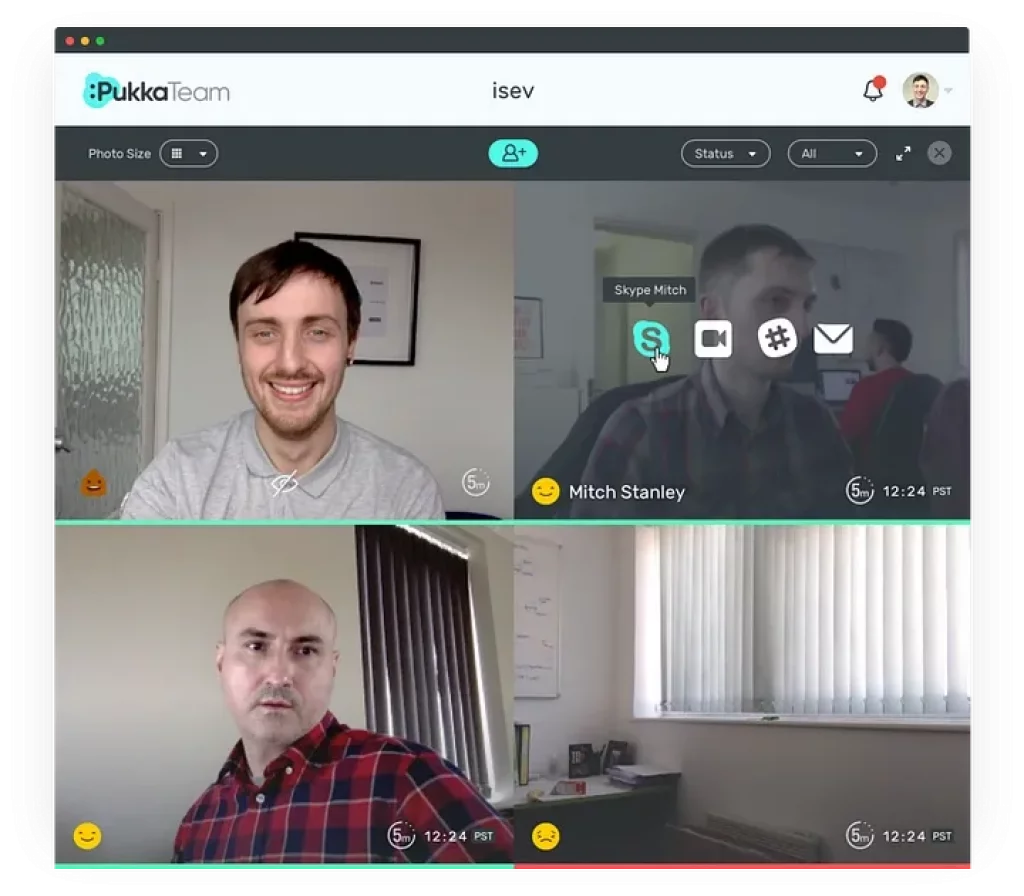What Makes a Good Remote Employee?
(The Qualities To Look For)

TL;DR
A good remote worker needs to be:
Tech savvy
Motivated
Organised
Accountable
Don’t mind working alone
Good communication skills
Adaptable
Remote work isn’t for everyone.
There we’ve said it, not everyone can work thrive in a remote working environment, and that’s ok.
Some people won’t have the discipline to work remotely, they may be easily distracted or unable to organise their workload efficiently, people like this are not the ideal candidates you want to work for you.
So what is it that makes someone a good remote worker?
When hiring a remote employee or team, there are certain qualities to look out for that will let you know if they are a good fit for your remote team.
To start with they will needs to be….
Tech savvy

First things first, for anyone working remotely, they will need to be tech savvy, as most (if not all) of their work will be done using technology.
All their communication with you and your team will be done using technology too, so having someone who is familiar with how these work or is quick to adapt is essential.
They’ll also need to be able to fix their own technical problems. Working from home there is no IT support, so any issues that come up will need to be dealt with by them.
Motivated

An effective remote employee needs to be motivated, they’re at home, alone, away from the ‘pring eyes of an office’.
In this situation, it’s easy to be distracted, cleaning the gutters, catching up on Game of Thrones and when will those dishes be done?
During the work day, a remote team member needs to be able to motivate themselves, avoid distractions to do their assigned work and meet their goals.
Organised

Organisation is key to a remote workers success, essentially they are managing their workload and time themselves.
Their working hours, tasks to be worked on, prioritising the tasks that need to be worked on.
All this will need to be organised and taken care of the employee.
Some of this can be helped from a manager with tools such as Basecamp or Trello where you can set and prioritise what needs to be worked on.
Accountable
You will need someone who is results oriented and understands they have a part to play to bring about those results, that they are accountable for it.
Any delays from them, could cause issues for other employees and a project as a whole.
They’ll need to understand their goals and know what they need to do to meet them, if there are going to be issues, they’ll need to let you know.
They don’t mind working alone

Some of the upsides of remote work such as no distractions from other employees, no commuting, better work life balance are all great!
However, one of the biggest issues with remote work is employees feeling lonely and isolated,
Telling someone that they can work from home sounds great on paper.
However actually experiencing being alone all day with no other human interaction can drag people down, which can have an impact on productivity.
You need to know that who you bring on board can handle this, and deal with it themselves.
Good communication skills
When in an office, it’s simple to go over to someone’s desk to see how work is progressing.

When you have a remote team, this simple task is no longer available.
Things such as goals, instructions, and deadlines absolutely have to be communicated very clearly and concisely, not doing so will have very apparent and with immediate consequences.
It will be up to your employees to communicate with colleagues on tasks, to resolve issues and keep projects moving forwards.
Someone who can’t communicate well and in a timely manner could hold up productivity and cause delays.
They need to be able to communicate effectively by talking (phone and video calls) and via text (email, instant messaging).
One of the barriers we often see is the ‘out of sight, out of mind’ mentality where if your employees can’t see each other, they’re not sure if they are available.
This is the one of the reasons we built PukkaTeam, to make communication simple, you can see who’s available and easily chat to team members with simple one-click calls.

Another process to put in place is to regularly get your team together to share work progress, this helps to keep everyone in the loop and let’s them know what to prioritise.
Adaptable
Anyone who joins the team will need to be adaptable in a number of different ways.
They will need to adapt to your process and way of working. Any tools and technologies you use, they’ll need to get used to.
An example for us would be switching on PukkaTeam and Slack first thing when starting work, it lets the team see you’re available and easily contact you, either via video or IM.
They will also need to adapt to unexpected problems that may arise such as their internet dropping out, you can’t afford to waste days of work because of this.
Your remote employee will need to adapt to the situation and knows how to react in such situations.
Heading to a cafe with wifi to carry on working, dropping you a quick email about the situation would show their initiative and ability to adapt.
Do your employees have these same characteristics? Are there others that you really value in your organization? If so, I’d love to hear about them.
If you’d like to try PukkaTeam, follow the link below and see what all the fuss is about, and start your FREE 14 day trial now!



 Form the Blog
Form the Blog